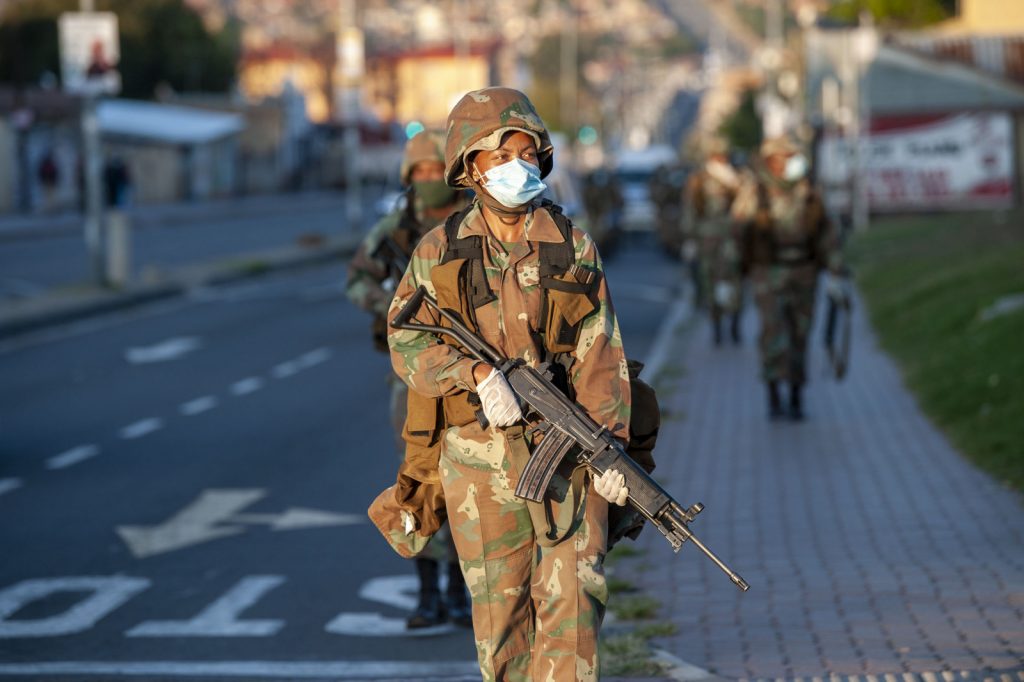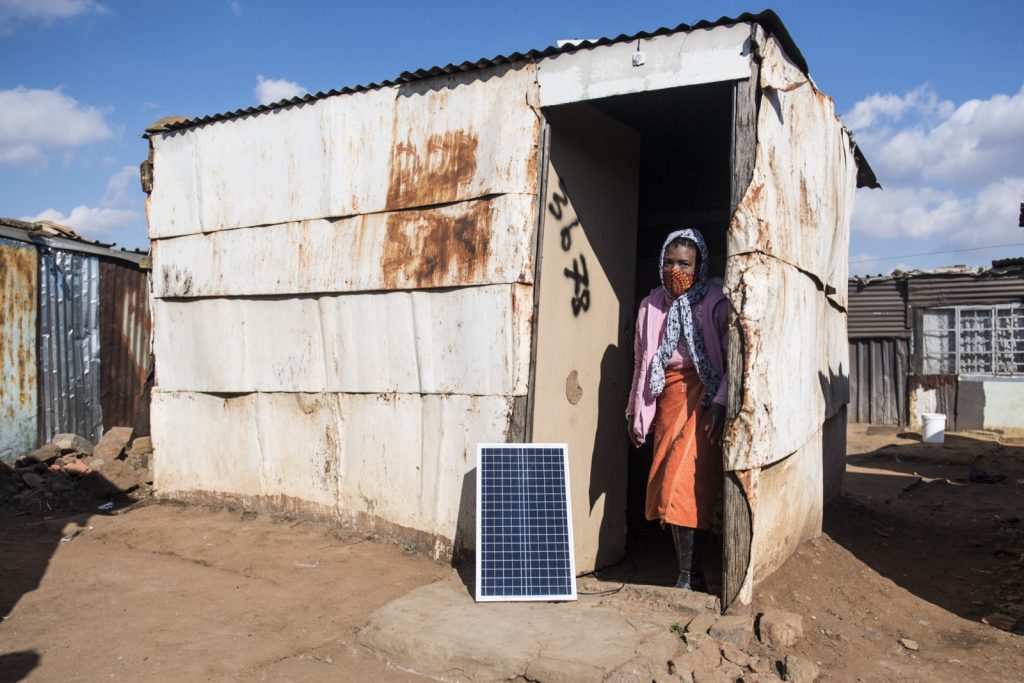The four threats facing South Africa and how to deal with them
Julia Gillard #JuliaGillard

After a series of horrendous years, you have to wonder if we’ve hit rock bottom. Then remind yourself that South Africa is a mining country.
There is no point in drowning in misery. Let’s review the problems and look for ways forward. How do state capture, Covid, Ukraine and climate change lead us to solutions?
Despite the Zondo commission, we are by no means out of state capture. A large part of the hollowing out of state capacity of the years soiled by former president Jacob Zuma is still there. There is a real possibility those who benefited from wholesale theft at state-owned enterprises are now sabotaging them to create the illusion the Zuma era was a golden age.
In the meantime, people suffer the consequences: failed municipal service delivery, catastrophically high unemployment and little prospect of change for most.
That President Cyril Ramaphosa convincingly saw off a concerted effort by the Zuma camp to bring him down at last month’s ANC elective conference only illustrates one point: don’t underestimate Ramaphosa. We are by no means out of the woods.
Yet there are some positives.
Covid hit us harder than most realise. Excess deaths — a measure of how many people died compared with the long-term average — as calculated by the South African Medical Research Council show in the vicinity of 340 000 more people have died since the pandemic took off in South Africa in May 2020 compared with the long-term average.

The figures show these excess deaths closely track the timing of official Covid deaths, officially less than a third of the number of the excess deaths. Many of the uncounted deaths would have been among the poor who are less likely to be able to access testing than the wealthy, particularly as government policy on testing became less generous as the pandemic progressed.
Despite this, we have emerged from the pandemic in relatively good shape because we have a broader mix of types of immunity than most societies. We had the original strain, Beta, Delta and Omicron. We also had two different vaccines in reasonably wide use: Pfizer (mRNA) and Johnson & Johnson (based on a modified form of a different virus).
This makes it harder for a major new variant to take hold here. It doesn’t mean we are completely out of it but we are in better shape than some other countries that are still experiencing pressure on their health systems.
Contrast with China, which went overnight from “Zero Covid” to “What Covid?”. Some estimate nearly 20% of the population was infected in less than three weeks. US-style libertarians will be happy. China is finally following their nostrums: only vaccines based on the original virus, no vaccine mandates, no lockdown and only recording Covid deaths if there is no other explanation. Other than the small problem of overflowing hospitals and crematoriums, it’s working just fine.
A consequence of the Zondo commission is that some tendencies have been flushed out into the open. The radical economic transformation cabal has long relied on fake intelligence reports, trumped-up charges and accusations of being an apartheid spy to sideline their opponents.
Their attack on Ramaphosa has upped the ante. Will he switch to hardball tactics, such as ensuring law enforcement agencies have the strong leadership needed to send politically connected criminals down? Will he reshuffle his cabinet now that Zuma loyalists have openly opposed him in the ANC leadership race?
Unless Ramaphosa shows he has what it takes to eliminate criminality at the core of his government, he is part of the problem. An exaggerated concern for unity gives the most disruptive disproportionate power. Ramaphosa should not forget Zuma was the cause of several splits from the ANC, including Cope and the Economic Freedom Fighters. How would a split that removes the worst crooks be harmful?

Looking wider, the two big crises the rest of the world faces are Russia’s war on Ukraine and climate change. President Vladimir Putin can compare himself to Peter the Great all he likes but this isn’t the 18th century. Our international order long ago outlawed wars of aggression and imperialist annexation. Russia’s predecessor, the Soviet Union, was a founder of that order. The 1933 Conventions for the Definition of Aggression were largely drawn up by the Soviets.
The USSR was a founding member of the United Nations and Russia as its successor, as a permanent member of the Security Council, can’t claim it is no longer bound by the UN Charter.
The biggest lesson for South Africa from the Russia-Ukraine war is how Ukraine has been able to outperform an opponent that is so much stronger on paper. When Ukraine split from the USSR in 1991, its military was the same as any ex-Soviet military. It had outdated equipment and doctrines, it was corrupt and it was poorly led.
After losing Crimea in 2014, Ukraine had a wake-up call and rapidly reskilled its military. The result was clear in late February and early March when they stopped the rapid advance on Kyiv well before the influx of Western weapons, particularly long-range precision munitions like the M142 High Mobility Artillery Rocket System, which was first deployed in late June 2022.
Russia, like Zuma’s South Africa, is a hollowed-out state that serves mainly to enrich a corrupt elite. Ukraine illustrates that, with the right will, this can be reversed. South Africa has a stronger base on which to build than Ukraine had in 2014. We still have many of the experts who made the South African Revenue Service a world-leading tax collector, for example.
The auditor general has the right skills to identify problems; all that is missing is strengthening law enforcement to ensure consequences. This is not enough on its own but reducing the massive haemorrhaging of state resources puts us on track to implementing a developmental agenda and undoing inequality.
Climate change is a huge brewing crisis for two reasons. We can expect a growing number of extreme weather events that will disproportionately affect the poor. Also, the coal and oil economy is increasingly under threat as the rest of the world gets wise to the need to switch from fossil fuels.
As a major coal supplier, that means we must not only reduce our reliance on fossil fuels but expect that exports will be under pressure. We need to pursue aggressive policies on solar power and alternative fuels.
 if we focus on renewables such as solar (below), climate change may be mitigated.
if we focus on renewables such as solar (below), climate change may be mitigated.
Failure to address all these issues will result in growing social and economic justice failure. A hollowed-out state cannot deliver a development agenda and will result in increased unemployment and the dysfunction of services. Addressing these issues puts us on track to reducing inequality and opening up opportunities.
Can we as a society afford the further collapse of government capacity? The relatively well-off can buy their way out of dysfunction. If we care at all about the poor, we should care about turning around the growing catastrophe that is the ANC. We do not have a lot of time.
Zuma securocrats are fighting back, climate change is increasingly heading towards irreversible tipping points and a growing fraction of our population is giving up hope. If the ANC government is not up to turning this around, we urgently need an opposition movement that is.
Makana Citizens Front provided a template for how this could work. Nonracial and cross-class solidarity delivered more votes than in last year’s Makana municipal election for the Democratic Alliance, despite minimal campaign resources.
Making such a coalition work nationally would not be easy; making it hold together after winning votes could be harder still as no movement is immune from self-serving position seekers. Nonetheless, it is worth trying as no opposition movement yet has captured the imagination of the most important group of voters — those who have given up.
Finally, would coalition politics work at the national level, if no party wins over 50%? Australia’s 2010 election provides a model. Julia Gillard’s Labor Party led a minority government with the support of The Greens and independents. The deal was simple — in exchange for a short list of demands, the smaller participants agreed to support the government against no-confidence votes and not to oppose the budget vote. Objectively, this was a very successful government though Gillard was undermined by the Murdoch media who attack any deal with The Greens.
So what are our prospects for 2023, leading into elections next year? The ANC is still deeply in trouble, only rescued by the inability of any opposition movement to gain traction. Climate justice is far from being achieved and reducing inequality remains a dream and will remain so until the state is decriminalised.
Despite all this, we have one positive to hold onto. Our people have fought long and hard for the right to disrespect authority. That limits impunity — no matter how low our government sinks, so the odds of a police state emerging remain low.
Philip Machanick is an emeritus associate professor of computer science at Rhodes University.
The views expressed are those of the author and do not necessarily reflect the official policy or position of the Mail & Guardian.